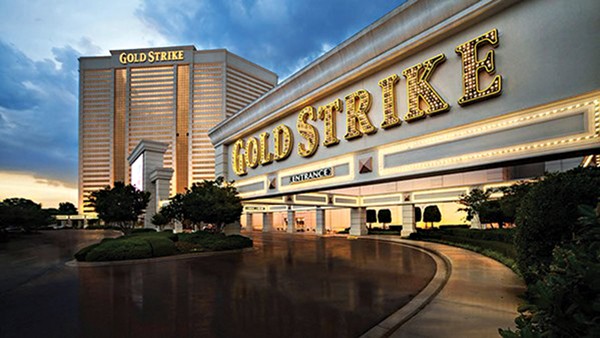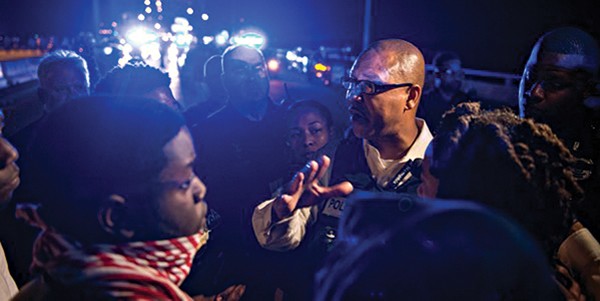January
Officials unveiled a plan for the Memphis Zoo’s new parking lot, which included paving green space and taking about 2.4 acres of parkland.
Downtown stakeholders discussed allowing open containers on Main Street, but the idea was nixed later.
Memphis was passed over for Amazon’s new headquarters despite offering an incentive package worth about $70 million.
J.T. Young was chosen as the new CEO of Memphis Light, Gas & Water (MLGW).
February
The Memphis City Council approved a one-year, 2 percent rate hike on MLGW’s gas and electric rates.
The Tennessee Comptroller reviewed the transactions that allowed city officials to sell three Memphis parks and remove Confederate statues and later deemed them lawful.
Hundreds marched demanding a $15 an hour minimum wage.
The council voted to remove several “offensive” murals installed by Paint Memphis.
The Tennessee Attorney General requested execution dates for eight death row inmates.
FedEx Corp. refused to axe discounts to the National Rifle Association (NRA) but said its positions on gun policy differed from the gun rights group.
March
Angus McEachran, once an editor of The Commercial Appeal, passed away.
The Tennessee Valley Authority (TVA) said it would not operate wells drilled into the Memphis Sand Aquifer and, instead, would buy water for its plant from MLGW.

Mid-South students joined a national walkout to protest gun violence.
Ground broke on the new $28 million Raleigh Town Center.
The Tennessee Supreme Court began setting execution dates for death row inmates.
Will Batts announced he was leaving his post as executive director for OUTMemphis.
The Riverfront Development Corp. was rebranded as Memphis River Parks Partnership, and the new group would be led by Kresge Foundation senior fellow, Carol Coletta.
Memphis Rox opened in Soulsville.
Thousands (including Senator Bernie Sanders) rallied and marched to honor Dr. Martin Luther King Jr.
April
A week of events commemorated the 50th anniversary of Dr. Martin Luther King Jr.’s death.
The city council approved Cooper-Young’s historic district status.
State lawmakers voted to take $250,000 from Memphis because city leaders removed Confederate statues.
A new law allowed liquor stores to be open seven days a week and for grocery stores to sell wine on Sundays.
Trolleys returned Downtown.
May
Graceland officials and Memphis Mayor Jim Strickland squabbled over a project to build a new performance and convention center in Whitehaven.
Phillip Spinosa resigned from his position on the city council to join the Greater Memphis Chamber.

The council gave historic district protections to Speedway Terrace.
Strickland signed a letter of intent with two companies to redevelop 100 N. Main building as the new convention center hotel.
A court ruled that the city’s sale of two Downtown parks and the removal of Confederate monuments from them was legal, dismissing a lawsuit initiated by the Sons of Confederate Veterans Forrest Camp.
Ford Canale was installed to fill Spinosa’s empty council seat.
Explore Bike Share launched.
June
Federal officials approved a $71 million project to upgrade Lamar Avenue.
Stormy Daniels brought her “Make America Horny Again” tour to The Pony.

Protesters called for an end to the separation of immigrant families at the U.S. border.
Bird debuted its electric scooters on the streets of Memphis.
July
New regulations for wells were approved in the wake of TVA’s controversial plan to pump from the Memphis Sand Aquifer.
Hundreds rallied against Trump’s immigration policies.
Strickland proposed de-annexing two areas in East Memphis.
The Daily Memphian, a new online news source, was unveiled.
Memphis Greenspace cleared out the remaining Confederate memorabilia from Memphis Park “to say goodbye to the past.”
State officials were ordered to stop revoking driver’s licenses from those who can’t pay traffic-ticket fines and fees after a lawsuit filed by Just City and others.
August
Sports betting began in Tunica under new laws in Mississippi.

Lee Harris was elected as Shelby County Mayor.
REI opened.
A court case began to determine whether or not the city of Memphis violated activists’ First Amendment rights with a system of surveillance that included extensive monitoring of social media.
State lawmakers found 538 exceptions to the state’s Open Records Act.
Aretha Franklin passed away.
The Friends of WEVL called for change at the volunteer radio station.
September
Restaurateur Bud Chittom passed away.
XPO warehouse workers filed a complaint about working conditions.
A modernization project kicked off for Memphis International Airport.
Purple Haze closed after a string of violence in and around the club.
A Memphis Police Department (MPD) officer turned off a body-worn camera during the shooting of Martavious Banks.
Facebook asked the MPD to cease using fake accounts for surveillance.
Greater Memphis Chamber president and CEO Phil Trenary was shot and killed in Downtown Memphis.
October
Nuclear Development LLC told the city council the city could save about $500 million per year if it bought its electricity from the Bellefonte Nuclear Plant.
Voters complained that the three council-related referenda on the November ballot were misleading. Early voting samples replaced key words from the actual ballot. Election machines here could also bump Democratic gubernatorial hopeful Karl Dean to a second page.
National Civil Rights Museum leader Beverly Robertson was picked to be Greater Memphis Chamber’s interim president and CEO.
Mighty Lights, the new lights on the city’s bridges, went live.

A court ruled the MPD violated a 1978 consent decree barring political surveillance of citizens.
November
The University of Memphis won a $5 million contract to study the Memphis Sand Aquifer.
Memphians said no to extending term limits for the mayor and city council, repealing instant runoff voting, and eliminating runoff voting altogether.
State officials gave the first of two approvals needed for a Tourist Development Zone that would transform the MidSouth Fairgrounds into a youth sports destination.
The city council began what would become a long, contentious process to fill one of three empty council seats. Later, they decided to stall the process until next year.
Wiseacre Brewing Co. announced plans to build a new, bigger brewery close to South Main.
December
XPO announced new policies on working conditions after Congress members threatened an investigation.
Descendants of Nathan Bedford Forrest filed a suit for the alleged desecration the family’s gravesite.